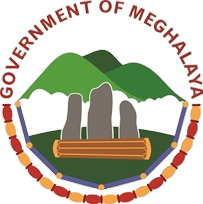INTRODUCTION
Biomedical waste management plays a crucial role in safeguarding the safety and well-being of individuals and the environment. It encompasses the proper handling, treatment, and disposal of waste generated by healthcare facilities. This waste includes items such as needles, syringes, blood-soaked bandages, and other potentially infectious materials. When not managed appropriately, biomedical waste can contribute to the spread of infectious diseases and environmental pollution.
THE IMPORTANCE OF PROPER BIOMEDICAL WASTE MANAGEMENT
Safe and effective biomedical waste management is essential for protecting public health and the environment. Healthcare facilities must adhere to specific guidelines and regulations to ensure the appropriate handling and disposal of biomedical waste. These guidelines include segregating waste into different categories, using suitable containers, and ensuring safe transportation and disposal methods. Additionally, comprehensive training and education for healthcare workers are vital to prevent accidents and promote compliance with regulations. By implementing these measures, healthcare facilities can minimize the risk of infectious disease transmission and environmental contamination, thereby safeguarding the well-being of patients, healthcare workers, and the general public.
ADDRESSING THE GAPS
In Meghalaya, the importance of infection prevention and control, as well as biomedical waste management, has been recognized to protect the health and safety of health workers, patients, and their families. Efforts have been made to implement biomedical waste management practices, including waste segregation, vaccination of biomedical waste handlers, and the dissemination of information and education materials. However, there are still areas that require improvement, such as local waste disposal practices, treatment of effluent biomedical waste from hospitals, the establishment of a common treatment facility, and the design of deep-burial pits that do not comply with standards. The recent COVID-19 pandemic has further emphasized the significance of proper infection prevention and control, as well as effective biomedical waste management.
Currently, the Meghalaya State Pollution Control Board is responsible for biomedical waste management in the state. While the state follows the Bio-Medical Waste (Management and Handling) Rules 2016 and subsequent amendments in 2018, there is still a need for more effective adherence to these rules. The government is in the process of establishing common biomedical waste treatment and disposal facilities in Shillong, Jowai, and Tura. Additionally, guidelines for solid waste management within Shillong City have been notified.
MEGHALAYA HEALTH SYSTEMS STRENGTHENING PROJECT
To address these challenges, under Component 2 of the project, efforts are being made to enhance the quality of health services through the development of a comprehensive quality assurance system, augmentation of human resource management systems, improvement of biomedical waste management practices, procurement and supply chain management, and the establishment of project management capacity. Biomedical waste management is a key focus area of the project, with support provided for infection prevention and control at healthcare facilities. This assistance includes the provision of essential supplies, equipment, and training. The project also aims to collaborate with the State Pollution Control Board, municipalities, and other stakeholders to develop and implement a plan for the improved management and disposal of biomedical waste generated by both government and private health facilities.
THE WASTE CHARACTERIZATION STUDY
To further strengthen biomedical waste management in Meghalaya, the project is undertaking a waste characterization study. This study aims to identify gaps, prioritize areas for improvement, and develop a comprehensive approach to biomedical waste management. The study encompasses various healthcare facilities, including 11 District Hospitals, 2 Maternal and Child Health Centers, 2 Tuberculosis Hospitals, 16 Community Health Centers, 48 Primary Health Centers, and 36 Sub-Centers across all districts of Meghalaya. Data collection for these facilities is completed and the project is analyzing the findings and developing an effective plan to address the identified gaps.

